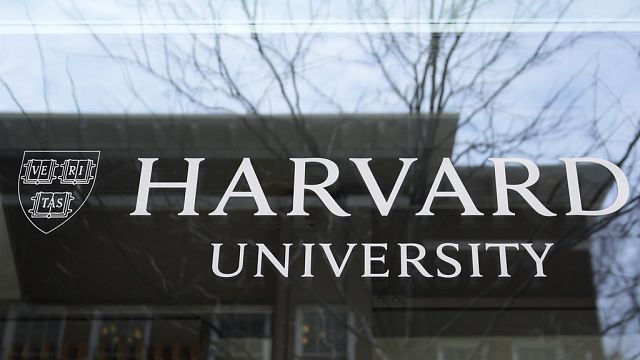In a shocking turn of events, the Trump administration has dealt a severe blow to Harvard University by revoking its ability to enroll international students. This decision has sent shockwaves through the academic community, as thousands of current foreign students now face the daunting prospect of either transferring to other schools or being forced to leave the country.
The Department of Homeland Security made this announcement, citing concerns about Harvard’s campus environment, alleging that the university has allowed “anti-American, pro-terrorist agitators” to target Jewish students. Additionally, the administration accused Harvard of collaborating with the Chinese Communist Party, claiming that the university had hosted and trained members of a Chinese paramilitary group as recently as 2024.
Harvard, a prestigious institution with a significant international student population of nearly 6,800 individuals from over 100 countries, has vehemently denied these allegations, labeling the administration’s actions as unlawful. The university has expressed deep concern over the potential harm to its academic and research mission, emphasizing the impact on both the Harvard community and the broader educational landscape.
This clash between the Trump administration and Harvard represents a broader conflict that has been escalating over time. The administration has been critical of elite universities, accusing them of fostering liberal ideologies and antisemitism. This antagonism has manifested in significant financial penalties imposed on Harvard, including the loss of federal grants amounting to $2.6 billion, as well as threats to revoke the university’s tax-exempt status.
The current standoff between Harvard and the government was triggered by a request from Homeland Security Secretary Kristi Noem, demanding information on foreign students possibly involved in activities that could lead to deportation. Harvard’s failure to comply with these reporting requirements led to the revocation of its certification in the Student and Exchange Visitor Program, effectively barring the university from hosting international students for the upcoming academic year.
Despite Harvard’s efforts to address concerns over antisemitism and campus safety, the administration remains steadfast in its stance. The move has drawn criticism from various quarters, with free speech advocates and educational organizations condemning what they perceive as an infringement on academic freedom and individual rights.
The implications of this conflict extend beyond the immediate impact on Harvard. The decision to bar foreign students raises questions about the treatment of international scholars in the U.S. and the broader implications for academic exchange and collaboration. Experts warn that such actions could have a chilling effect on international students seeking education in the country, potentially deterring future talent from coming to America.
As the situation continues to unfold, it underscores the complex interplay between politics, academia, and international relations. The clash between Harvard and the Trump administration serves as a microcosm of broader debates around freedom of expression, national security concerns, and the role of universities in shaping global discourse.
In conclusion, the standoff between Harvard and the Trump administration represents a critical juncture in the ongoing tensions between academic institutions and governmental authorities. It raises fundamental questions about the balance between academic autonomy and government oversight, highlighting the profound impact of such conflicts on the educational landscape and international relations.
Originally reported by Africa News
Read more at: http://www.africanews.com/2025/05/23/trump-administration-bars-harvard-from-enrolling-foreign-students/

